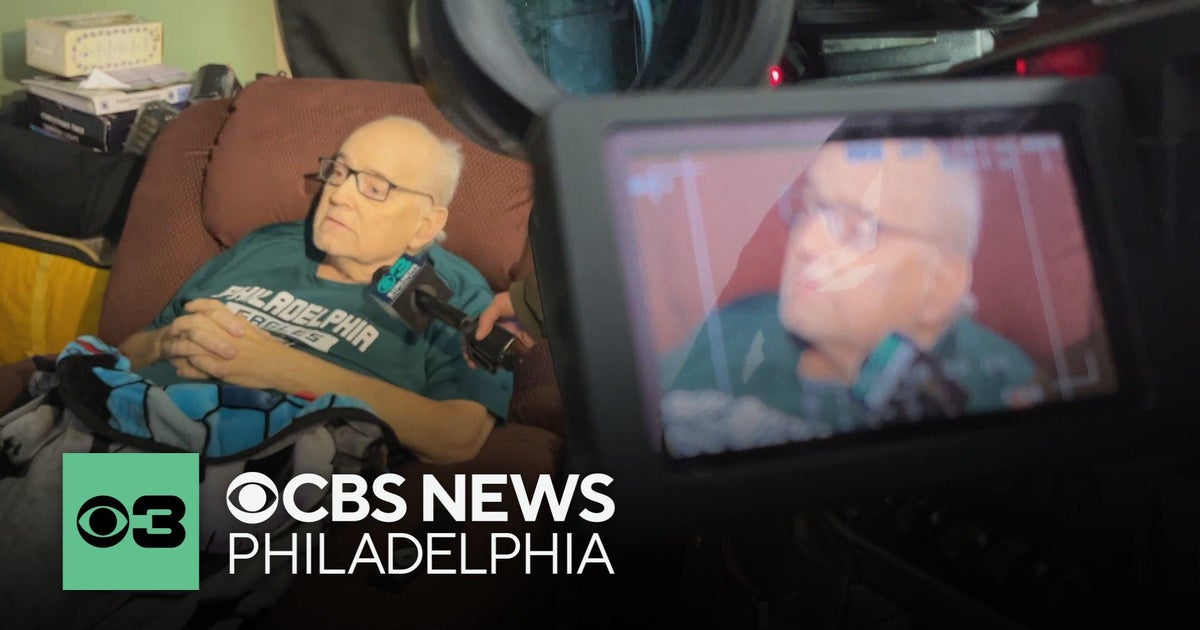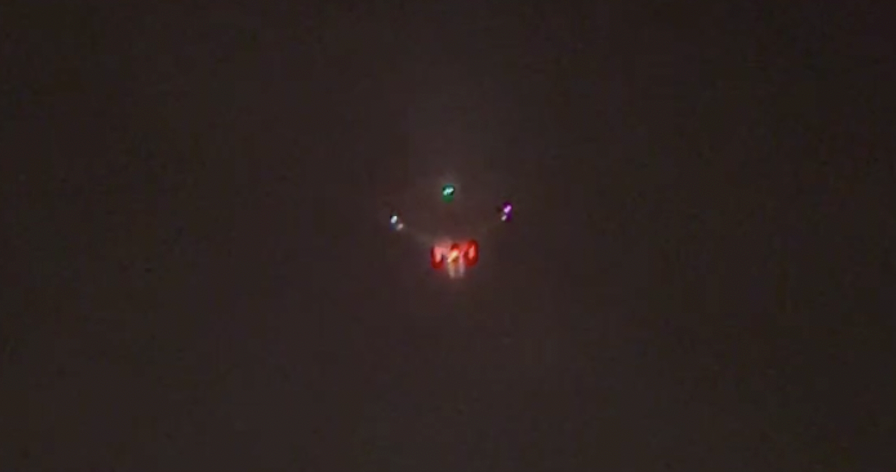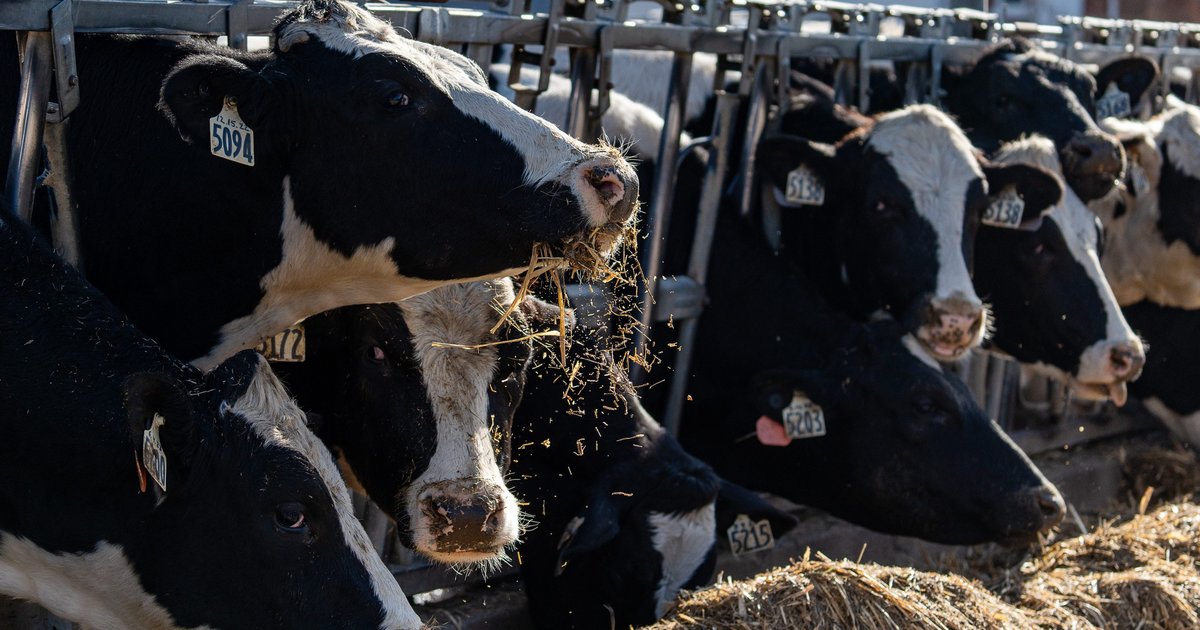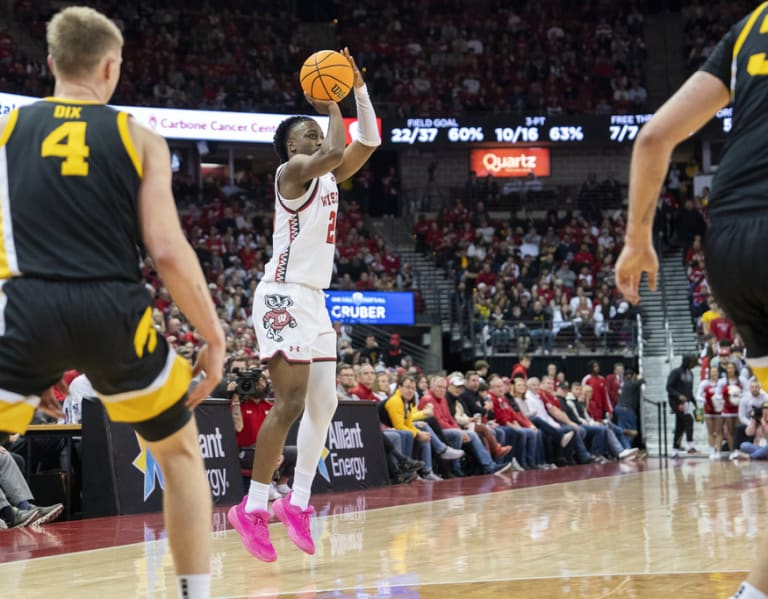Pennsylvania
PA Attorney General holds student roundtable to discuss gun violence solutions
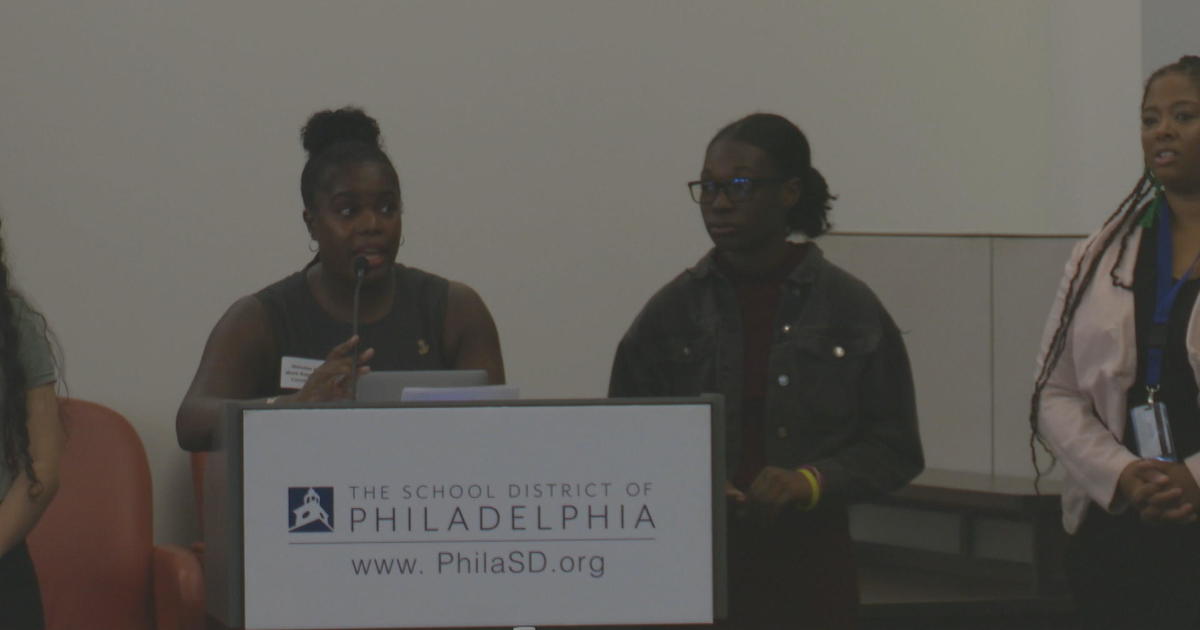
PHILADELPHIA (CBS) — Gun violence in schools was the topic of conversation as Pennsylvania Attorney General Michelle Henry came to town Friday. Attorney General Henry sat down with students from across Philadelphia to get their thoughts on what solutions need to be made.
Zahkir Williamson has seen gun violence first hand.
“I’ve been shot at two times in my life. So it really put a toll on me mentally,” Williamson said.
Other students like Kyla Early have been worried about gun violence on their route to school.
“Oh well I take that block to get on the subway to go home. So now it’s like I have to reroute my whole way home. I have to watch like extra close on my surroundings,” Early said.
Now they and nearly two dozen of their classmates are looking to do something about it.
On Friday, 22 Philadelphia public school students had a closed-door conversation to pitch solutions to Henry.
“What we can do as a community to better support them, to be there for them, to communicate with them, what changes we can make because they deserve that,” Henry said.
Students and leaders also put a focus on young people and access to guns. School district officials admit those guns are making their way into classrooms more often.
“That’s always been an issue, with access to guns. What’s happened now is we’ve had a significant increase in that activity,” Chief of School Safety for the Philadelphia School District Kevin Bethel said.
Bethel says the district is working on several initiatives to protect students going to and from school.
But more than guns, students wanted to focus on mental health and the aftermath of the violence. They say that starts with having open conversations.
“We always do need to talk about it regardless of how uncomfortable or comfortable you are with it. That’s with a lot of things. So I think instead of trying to graze over it, you have to take it for what it is,” Trinity Lewis, a student from Academy at Palumbo said.
“I really wanted them to understand the child’s point of view. Because as a kid, as a teenager, as a high school student, you get silenced a lot and not a lot of people listen to you,” Early said.
Henry says she plans to continue these conversations with students across the state. After that, she’ll issue a report with recommendations from those students.

Pennsylvania
Biden kills U.S. Steel deal; what Trump said and what it means for Pennsylvania
Biden blocks Japanese takeover of U.S. Steel
President Biden is blocking the proposed $14 billion acquisition of U.S. Steel by Nippon Steel.
Fox – 10 Phoenix
President Joe Biden’s decision to block Nippon Steel’s bid to buy U.S. Steel could have significant implications for Pennsylvania and the steel industry.
President-elect Donald Trump had already said he would kill the deal when he takes office later this month to keep a foreign firm from taking over the Pittsburgh-based business.
U.S. Steel employs thousands across its plants and offices in Pennsylvania and the state has about 10% of the nation’s steelworkers.
For them, Biden’s intervention could mean short-term job stability, as the administration emphasizes keeping the company under American ownership.
But, it’s not a fix for U.S. Steel’s problems; the company has said it needs financial resources to upgrade plants and keep pace with demand for steel around the world.
Biden on Friday issued the order blocking Nippon Steel Corp.’s proposed $14.9 billion purchase of U.S. Steel, citing his presidential authority under the Defense Production Act of 1950 and calling the steel industry “critical for resilient supply chains.”
Nippon and U.S. Steel, however, took exception to the order.
In a joint statement, U.S. Steel and Nippon Steel said it was “dismayed” by Biden’s decision, calling it “a clear violation of due process and the law governing CFIUS.”
The companies said blocking the sale will deny billions of dollars in investments planned in the U.S. and vowed to take “all appropriate action to protect our legal rights.”
(This story was updated to add new information.)
Pennsylvania
Prominent Trump fundraiser enters Pa. GOP chairman race amid pushback to Sen. Rothman

Electors take a group photo after the end of proceedings. Pennsylvania’s electors cast their votes for President-elect Donald Trump and Vice President-elect JD Vance in the chambers of the state House of Representatives at the Capitol in Harrisburg, Pa.
December 17, 2024.
Dan Gleiter | dgleiter@pennlive.comDan Gleiter | dgleiter@pennlive.com
Pennsylvania
Penn expecting $467M windfall from COVID-19 vaccine royalty dispute
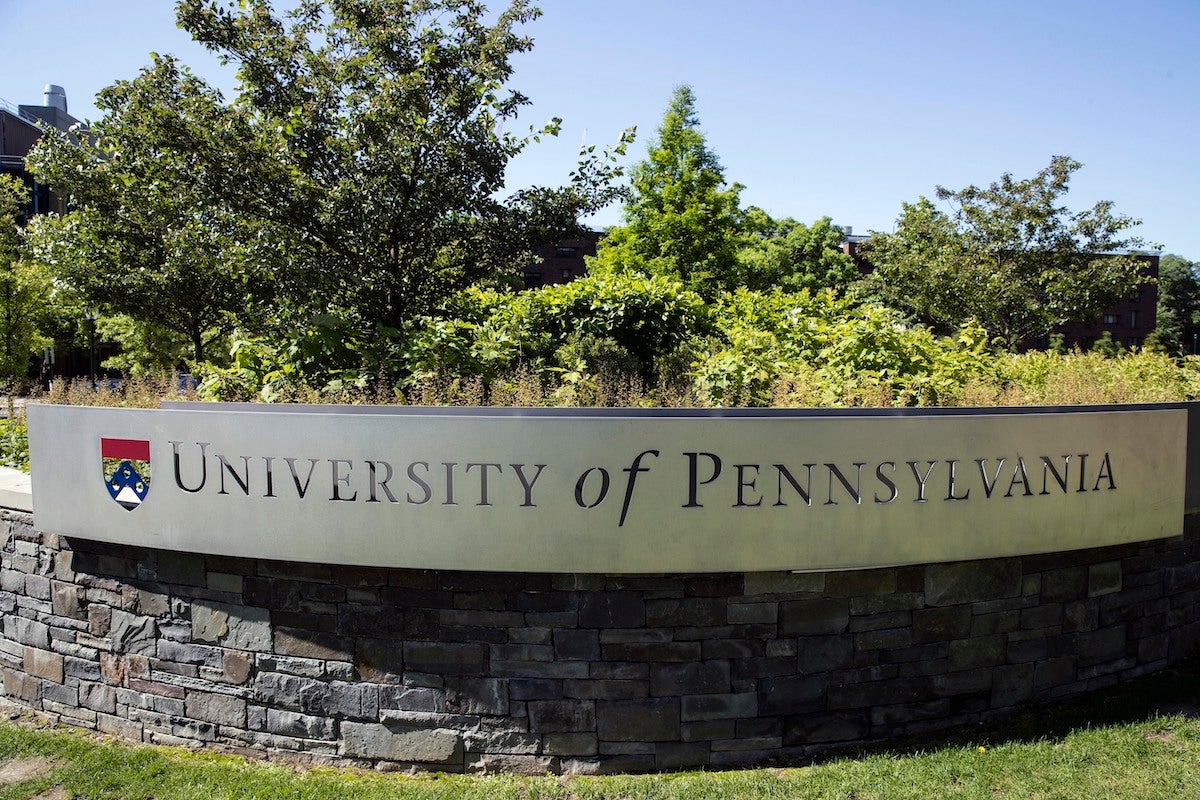
Penn Medicine researchers Katalin Karikó Ph.D., and Dr. Drew Weisman Ph.D., won the 2023 Nobel Prize in Medicine for their work on mRNA technology that contributed to the COVID-19 vaccine research.
Patents typically last about 20 years. The university holds at least four patents for its mRNA technology across the United States and Europe.
Researcher Karikó, an adjunct professor at Penn Medicine for 36 years, worked as a senior vice president for BioNTech between November 2013 and October 2022, according to her LinkedIn profile. She is considered an external consultant for the company as of Jan. 2, according to its website.
The COVID-19 vaccine, also known as Comirnaty, generated about $5 billion in sales in 2024.
As part of the deal, pharmaceutical giant Pfizer is expected to chip in $170 million for the Penn royalties and $364 million towards the NIH royalties owed.
As a company, BioNTech generated about $3.9 billion in revenue during 2023, down from $17.7 billion in 2022. BioNTech estimated 2024 revenue to be between $2.7 billion and $3.3 billion.
The university licensed its mRNA patents to several companies between April 2010 and August 2020, including Epicentre Technologies Corp., mRNA Biotherapeutics Inc. and Cellscript.
In 2017, BioNTech sublicensed the university mRNA technology from Cellscript and expects to keep developing more pharmaceutical medications, such as cancer treatments and flu vaccines, using the university patented technology.
Licensing revenue at the University of Pennsylvania has been a substantial revenue stream for the Philadelphia institution since the COVID-19 pandemic began.
In fiscal 2021, the university collected $300 million in license revenue. In fiscal years 2022 and 2023, the university garnered $1 billion each year. During fiscal year 2024, it reported $466 million in licensing revenue.
In May 2024, Penn Medicine researchers developed an mRNA vaccine for the H5N1 avian flu, leveraging prior COVID-19 vaccine research. The research was funded by the National Institute of Allergy and Infectious Diseases, National Institutes of Health and the Department of Health and Human Services.
The Duke University Human Vaccine Institute was awarded $7 million from the federal health agencies to conduct clinical trials in early 2025.
But for the commercialization of such research, the university relies on pharmaceutical manufacturers to license such patents and take the drug to market.
It was not immediately clear which companies, if any, have licensed the experimental avian flu technology.
-

 Business1 week ago
Business1 week agoOn a quest for global domination, Chinese EV makers are upending Thailand's auto industry
-

 Health6 days ago
Health6 days agoNew Year life lessons from country star: 'Never forget where you came from'
-
/cdn.vox-cdn.com/uploads/chorus_asset/file/24982514/Quest_3_dock.jpg)
/cdn.vox-cdn.com/uploads/chorus_asset/file/24982514/Quest_3_dock.jpg) Technology6 days ago
Technology6 days agoMeta’s ‘software update issue’ has been breaking Quest headsets for weeks
-

 World1 week ago
World1 week agoPassenger plane crashes in Kazakhstan: Emergencies ministry
-

 Politics1 week ago
Politics1 week agoIt's official: Biden signs new law, designates bald eagle as 'national bird'
-

 Business3 days ago
Business3 days agoThese are the top 7 issues facing the struggling restaurant industry in 2025
-

 Politics1 week ago
Politics1 week ago'Politics is bad for business.' Why Disney's Bob Iger is trying to avoid hot buttons
-

 Culture3 days ago
Culture3 days agoThe 25 worst losses in college football history, including Baylor’s 2024 entry at Colorado


